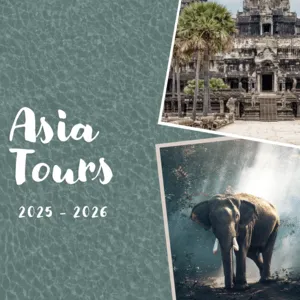Cultural Experiences Bhutan
Cultural Experiences Bhutan
Immerse yourself in the vibrant and unique culture of Bhutan, the Land of the Thunder Dragon. This category is dedicated to providing you with authentic and enriching cultural experiences, allowing you to connect deeply with Bhutanese traditions, people, and way of life. By focusing on “Cultural Experiences Bhutan,” we ensure you get the most out of your journey.
Discover the Essence of Bhutanese Culture
Bhutan’s culture is a tapestry woven with ancient traditions, Buddhist spirituality, and a deep respect for nature. From vibrant festivals to intricate arts and crafts, every aspect of Bhutanese life offers a unique glimpse into a kingdom that values Gross National Happiness over Gross Domestic Product. Exploring Bhutan’s cultural heritage is more than just sightseeing; it’s an immersion into a living, breathing tradition. Therefore, Cultural Experiences Bhutan are carefully designed to be respectful, engaging, and beneficial to both visitors and local communities.
Tshechu Festivals: A Celebration of Faith and Community
One of the most captivating aspects of Bhutanese culture is the Tshechu festival. Held in dzongs (fortress-monasteries) and temples across the country, these vibrant events honor Padmasambhava, the revered mastermind who brought Buddhism to Bhutan. During these festivals, you can witness spectacular masked dances (Cham dances), colorful costumes, and deeply rooted rituals. Popular Tshechus include the Paro Tshechu and Thimphu Tshechu. These, in turn, offer an unparalleled opportunity to experience Bhutan’s spiritual heart. Key phrase to remember: Paro Tshechu
Address: Paro Dzong, Paro, Bhutan (for Paro Tshechu). Timing varies annually, usually in spring.
Monasteries and Dzongs: Architectural Marvels and Spiritual Centers
Bhutan’s landscape is dotted with majestic dzongs and monasteries, each holding centuries of history and spiritual significance. Not only are these structures beautiful, but they also serve as active centers of religious practice and community life. For instance, you can visit the iconic Taktsang Monastery (Tiger’s Nest), perched dramatically on a cliffside. Alternatively, explore the Punakha Dzong, renowned for its stunning architecture and location at the confluence of two rivers. Ultimately, understanding *Bhutan cultural immersion* helps appreciate these sites.
Address: Taktsang Monastery, Paro, Bhutan. Open daily, but requires a hike. Punakha Dzong, Punakha, Bhutan. Open daily, except during certain festivals.
Traditional Arts and Crafts: The Living Heritage of Bhutan
Bhutanese artisans are masters of various traditional crafts, known as Zorig Chusum (the thirteen arts and crafts). These include weaving, painting, carving, sculpting, and papermaking. By visiting local workshops and markets, you can witness these skills firsthand and, perhaps, even try creating your own masterpiece. Additionally, the National Institute for Zorig Chusum in Thimphu provides fascinating insight into these traditional arts. So, many visitors enjoy *Bhutanese cultural tours* that include craft demonstrations.
Experiencing Bhutanese Daily Life
To truly understand Bhutanese culture, it’s essential to engage with the local way of life. This might involve staying in a traditional farmhouse, participating in a cooking class, or learning about Bhutanese etiquette and customs.
Homestays: Authentic Immersion
An intimate and authentic cultural experience can be gained by staying with a Bhutanese family. You’ll share meals, learn about daily routines, and gain a deeper understanding of Bhutanese values and hospitality. This method is perfect for practicing the local language and building lasting connections, offering the truest *cultural immersion in Bhutan*.
Bhutanese Cuisine: A Culinary Adventure
Bhutanese food is a unique and flavorful experience, characterized by the liberal use of chilies. Be sure to try the national dish, Ema Datshi (chilies and cheese), and other local delicacies like momos (dumplings) and red rice. Moreover, participating in a cooking class is a great way to learn about the ingredients and techniques used. Remember those delicious *Bhutanese food experiences* you’ll have!
Traditional Dress: Kira and Gho – An Enduring Symbol
The Kira for women and the Gho for men, Bhutan’s national dress, are visible symbols of Bhutanese identity. Because these elegant garments are worn daily, they stand as a testament to the country’s commitment to preserving its cultural heritage. Consider purchasing a Kira or Gho as a unique souvenir. You can experience this firsthand on your *Bhutan cultural journey*.
Nearby Attractions and Additional Experiences
Bhutan offers a wealth of experiences beyond its core cultural attractions. Consider, for example, incorporating some of these into your itinerary:
Most Interesting: Tiger’s Nest Monastery
- Most interesting: Tiger’s Nest Monastery (Taktsang). Because it’s perched on a cliff, this iconic monastery is a must-see, offering breathtaking views. The hike is an adventure, and the spiritual significance is palpable.
- Address: Paro Valley, Bhutan
- Opening Hours: 8:00 AM – 1:00 PM and 2:00 PM – 6:00 PM (October to March), 8:00 AM – 1:00 PM and 2:00 PM – 5:00 PM (April to September)
- Availability: Open daily, weather permitting.
- Price: Included in the daily tourist fee.
Most Piquant: Phallic Symbols
- Most piquant: Phallic Symbols in Bhutanese Culture. Discover the unexpected, intriguing tradition of painting phallic symbols on houses, believed to ward off evil and promote fertility. This represents a unique, slightly provocative aspect of Bhutanese culture.
Most Spectacular: Punakha Dzong
- Most spectacular: Punakha Dzong. Situated at the confluence of two rivers, this fortress-monastery exemplifies stunning Bhutanese architecture and is a visual masterpiece.
- Address: Punakha, Bhutan
- Opening Hours: 9:00 AM – 5:00 PM (November to April), 11:00 AM – 5:00 PM (May to October).
- Availability: Open daily, except during certain festivals.
- Price: Included in the daily tourist fee.
Funniest: Archery Match
- Funniest: Attend a local archery match. Because archery is the national sport of Bhutan, watching a local competition is a fun, entertaining experience, often filled with good-natured rivalry and humor.
Most Mysterious: Merak and Sakteng
- Most mysterious: Explore the remote regions of Merak and Sakteng. Home to the semi-nomadic Brokpa people, these areas are shrouded in mystery and offer a glimpse into a unique, ancient way of life.
Most Extreme: Jomolhari Trek
- Most extreme: Embark on the Jomolhari Trek. This challenging, high-altitude trek provides stunning mountain scenery and truly tests one’s endurance.
Most Inspiring: Monastery Visit
- Most inspiring: Visit a Buddhist monastery to witness the monks’ daily rituals and prayers. You’ll find the peaceful atmosphere and spiritual energy are deeply inspiring.
Most Amazing: Mount Jomolhari
- The most amazing: Witness the breathtaking view of Mount Jomolhari, a sacred mountain, considered the abode of deities.
Most Atmospheric: Hot Stone Bath
- The most atmospheric: Experience a traditional hot stone bath. This ancient practice is incredibly relaxing, thus offering a unique cultural experience.
Most Unusual: Takin Preserve
- The most unusual: Visit the Motithang Takin Preserve in Thimphu and see the Takin, Bhutan’s unusual national animal.
- Address: Motithang, Thimphu, Bhutan
- Opening Hours: 9:00 AM – 4:00 PM (Closed on Mondays)
- Availability: Open daily, except Mondays.
- Price: Included in the daily tourist fee.
Planning Your Cultural Experience
Planning a trip to Bhutan requires some preparation. All tourists (excluding Indian, Bangladeshi, and Maldivian nationals) must book through a licensed Bhutanese tour operator. Consequently, this ensures sustainable tourism and helps preserve Bhutan’s unique culture and environment. As a result, booking *Bhutan cultural experiences* is straightforward and well-organized.
High-Frequency Queries:
- What is the best time to visit Bhutan for cultural festivals?
- How do I book a cultural tour in Bhutan?
- What customs and etiquette should I be aware of in Bhutan?
Additional Relevant Terms:
Dzong, Tshechu, Gho, Kira, Ema Datshi, Buddhism, Gross National Happiness, Thimphu, Paro, Punakha, Tiger’s Nest, Zorig Chusum, Brokpa, Hot Stone Bath, Takin.
Cultural experiences in Bhutan offer a journey into a kingdom that has preserved its traditions and values. Respect local customs and engage with the Bhutanese, you’ll gain a deep appreciation for this unique destination. Thus, a trip focused on *Bhutan cultural immersion* will leave you transformed.


